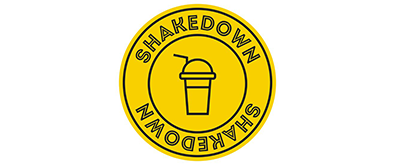For the UK restaurant industry, customers are becoming more demanding all the time – and upping your game constantly is now the only way to remain a player.
Deliveroo, for instance, have just announced they’ll be enabling restaurants to offer dish-by-dish calorie information on their platform, and restaurants including Yo! Sushi, Jamie’s Italian and Pho are among those taking the opportunity.
Healthy eating; veganism; ethical eating; fast dining; it’s a headache to keep up with it all – but so essential; and that’s why restaurant management systems are a massive trend in the industry.
Restaurant management systems genuinely put power in your hands – serving staff use handheld technology including dedicated devices or tablets to take orders and payments tableside.
Managers and owners, meanwhile, get a real-time view of operations online via their mobile or laptop.
Restaurant management systems also capture information about diners, including their preferences, record what’s selling best and – importantly – help restaurateurs to identify what’s trending.
So restaurant companies of all sizes now rely on restaurant POS software to streamline operations and reduce costs – especially multi-site groups who appreciate the head office functions it offers.
So what features should your restaurant management system have if you want to be sure to keep up with evolving diner demands?
Here are 9 key questions you should ask your technology provider.
1. Is this a dedicated restaurant management system?
EPOS systems are available for retail, too, but you need more facilities than they can provide, so be sure your system has been specially developed to meet restaurant requirements.
2. Does it provide course management?
To give demanding guests the best customer service, you need a flexible system that allows you to split courses to help the kitchen and make changes such as substituting a starter as a main course.
Your serving staff needs an easy interface to make this happen, and the restaurant management system should integrate with kitchen technology so the printers or screens deliver the right information to each station.
3. Can it go places for your guests?
Your staff needs to be able to send from their handheld devices to different destinations – orders should go directly to the kitchen, for instance, while payments can be taken at tableside and printed out in the restaurant.
4. Does it help chef design cost-effective dishes that don’t risk diners’ health?
Allergen control is crucial – we’ve already seen too many tragic deaths from badly-identified allergens in food.
The Aloha restaurant management system recently partnered with chef-designed KitchenCUT technology that tracks potential allergens throughout dishes and menus and also helps chefs keep costs under control.
The system also helps with stock control by identifying best-selling dishes, which helps with good procurement decisions and reduces food waste – an important issue for ethical diners.
5. Can it keep my menu workable?
Business fluctuates, so it’s crucial to manage your menu for different times of the day so your staff don’t have to deal with a long menu.
For instance, if you offer breakfast, lunch, and dinner, you could end up with an unwieldy menu on the handheld device.
Advanced restaurant management technology allows you to customise screen layouts according to job codes. You can also enable or disable menus based on the terminal or area, the time, the day or even specific dates.
6. What about diners on the move?
If your diners shift tables, you want your staff to be able to reallocate their order easily, so your restaurant management system should have flexible table maps where you allocate specific orders to particular tables.
The same system will also allow you to transfer the ticket, and merge or split tables up. Aloha’s Guest Manager, for instance, suggests a table for wait time and profitability – it won’t suggest three people are seated on a four top if it’s next to another that can create an eight.
7. Can it manage customers’ bills well?
Your restaurant management system should be able to split bills easily – particularly if you run a casual dining restaurant where parties can be large. It speeds up table turn quicker and makes the dining experience seamless.
8. Does the system help engage diner loyalty?
It should capture diner data because if you know their preferences you can create email marketing campaigns that will hit the mark and bring them back again.
9. Will customers notice our staff are training?
No – with a good system there’s little disruption because staff can be taking orders within a couple of hours, and giving guests the improved service they’ll enjoy.
What else should you think about?
A restaurant management system is an important investment but can be available on rental schemes with an easy monthly payment that make ROI swift. Hosted systems mean you don’t have to buy expensive hardware.
Take your time, and make sure you make a wise choice – going for restaurant management software may be one of the more important decisions you’ll ever make for your business and for your diners.
- See all the benefits of restaurant EPOS here.
- Digital dining works for you and your customers all day – see the video
















